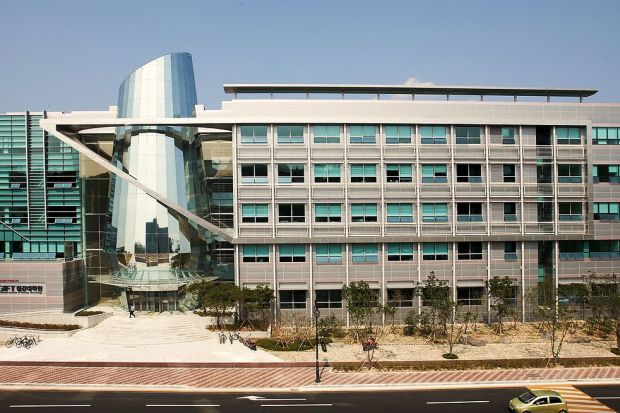POSTECH: POSTECH and POSCO Chemical Partner to Raise Experts in Battery Materials
POSTECH has entered into a partnership with POSCO Chemical to raise specialists in cathode and anode materials, used for production of batteries.
POSTECH and POSCO Chemical signed an agreement with POSTECH’s Graduate Institute of Ferrous & Energy Materials Technology (GIFT) on March 22 to raise specialists in battery materials together by establishing an “e-Battery Track” graduate program. Key stakeholders from both institutions including POSCO Chemical CEO Kyung-Joon Min and POSTECH president Moo Hwan Kim attended the signing ceremony.
The new graduate track, which kicks off with the graduate admissions in the second half of 2022, has been created to secure core talents in battery materials, considered as one of the major future industries. New students will be selected for the master’s program or the MS/PhD integrated program of the track. The students in the program will be provided with a full tuition support and an additional scholarship. During the course of the program, they will take part in on-site research and corporate projects, and will be guaranteed employment at POSCO Chemical upon graduation.
With this partnership with POSTECH, POSCO Chemical has shown its commitment to accelerate plans to train specialized researchers in battery materials and to take the global lead in the secondary battery market. President Moo Hwan Kim emphasized, “POSTECH’s strength lies in elite education and innovative research, and we will help raise outstanding talents who will contribute to the industry and nation through this new partnership with POSCO Chemical, a leader in the field.”
“POSCO Chemical has been contributing to the development of the secondary battery industry by being the only company in Korea that produces and conducts research and development on cathode/anode materials,” remarked Mr. Kyung-Joon Min, the CEO of POSCO Chemical. “We will be proactive in nurturing and securing battery talents for our endeavor and secure unrivaled competitiveness in the future battery industry to help develop its ecosystem.”

